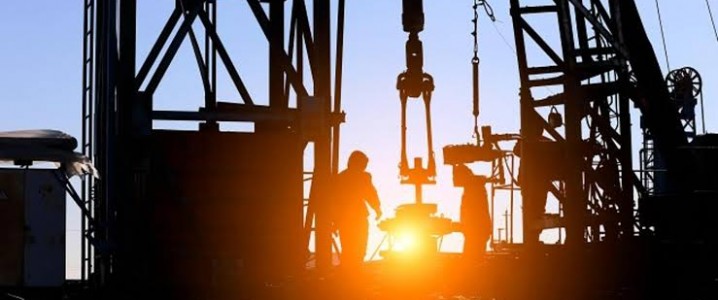 The digitalization of subsurface information to collect data and improve production techniques could enhance exploration and drilling processes worldwide, led by Egypt. A new project from The Egyptian Ministry of Petroleum and US-based oilfield services company Schlumberger, the Egypt Upstream Gateway (EUG), will digitalize subsurface information and make the data available worldwide through this access point. It aims to provide geological data to enhance drilling and production in the country’s waters.
The digitalization of subsurface information to collect data and improve production techniques could enhance exploration and drilling processes worldwide, led by Egypt. A new project from The Egyptian Ministry of Petroleum and US-based oilfield services company Schlumberger, the Egypt Upstream Gateway (EUG), will digitalize subsurface information and make the data available worldwide through this access point. It aims to provide geological data to enhance drilling and production in the country’s waters.
Taking just one year to build, the EUG is expected to collect over 100 years’ worth of accumulated national onshore and offshore seismic, non-seismic, well-log, production, and additional subsurface data under a single platform, according to a Schlumberger press release.
The first-of-its-kind technology in Egypt will use these data to alleviate risk in the exploration of oil across multiple basins. Egypt hopes to lead the way through the digitalization of data to enhance access to information and encourage greater foreign investment in the sector.
“The Egypt Upstream Gateway will digitally promote Egypt’s oil and gas bid rounds through seamless online access to the sector’s data, as well as endorsing our exploration potential worldwide.” Tarek El-Molla, Egypt’s minister of petroleum and mineral resources, explained.
“We believe that EUG will create game-changing impacts by promoting Egypt’s E&P potential on a truly global scale”, Khaled Al Mogharbel, EVP of Geographies at Schlumberger, added about the development.
The heads of ten energy companies, including Italian Eni, American Apache, and German Wintershall Dea, signed membership agreements in the portal following its launch in February.
Over the last year, there has been a significant push towards been greater digitalisation across the oil and gas sector by both the private and public entities around the world. Oil and gas companies are now working hand-in-hand with tech firms, from giants to start-ups, who provide innovative cost and time saving solutions for energy exploration, monitoring, extraction, and delivery.
In 2020, of all oil and gas companies surveyed for DNV-GL’s industry outlook report, 92 percent expected to increase or maintain levels of spending on digitalization. The main reason cited was adding value to the industry.
Previous developments in digitalization have already been made at the international level. In 2018, the Open Subsurface Data Universe (OSDU) forum was created as a means of establishing a standardised data platform where members could work in collaboration to ensure secure, reliable, worldwide access to subsurface and well information.
Over 35 oil and gas companies are currently participating in the OSDU, including founding companies Equinor and Shell. Members are contributing their knowledge and expertise to enhance the system, to develop the quantity and quality of shared subsurface data across the sector.
Emerson joined in 2020 with the aim of improving the efficiency of reservoir modelers and reservoir engineers and accelerate digital innovation across reservoir workflows. The standardisation of data through the system will help companies save time and money through a more streamlined and accurate information sharing process.
We will soon see what Egypt’s new EUG adds to the development of subsurface data as bidding begins on the exploration of oil across 24 regions in the Gulf of Suez, the Western Sahara, and the eastern and western Mediterranean.

